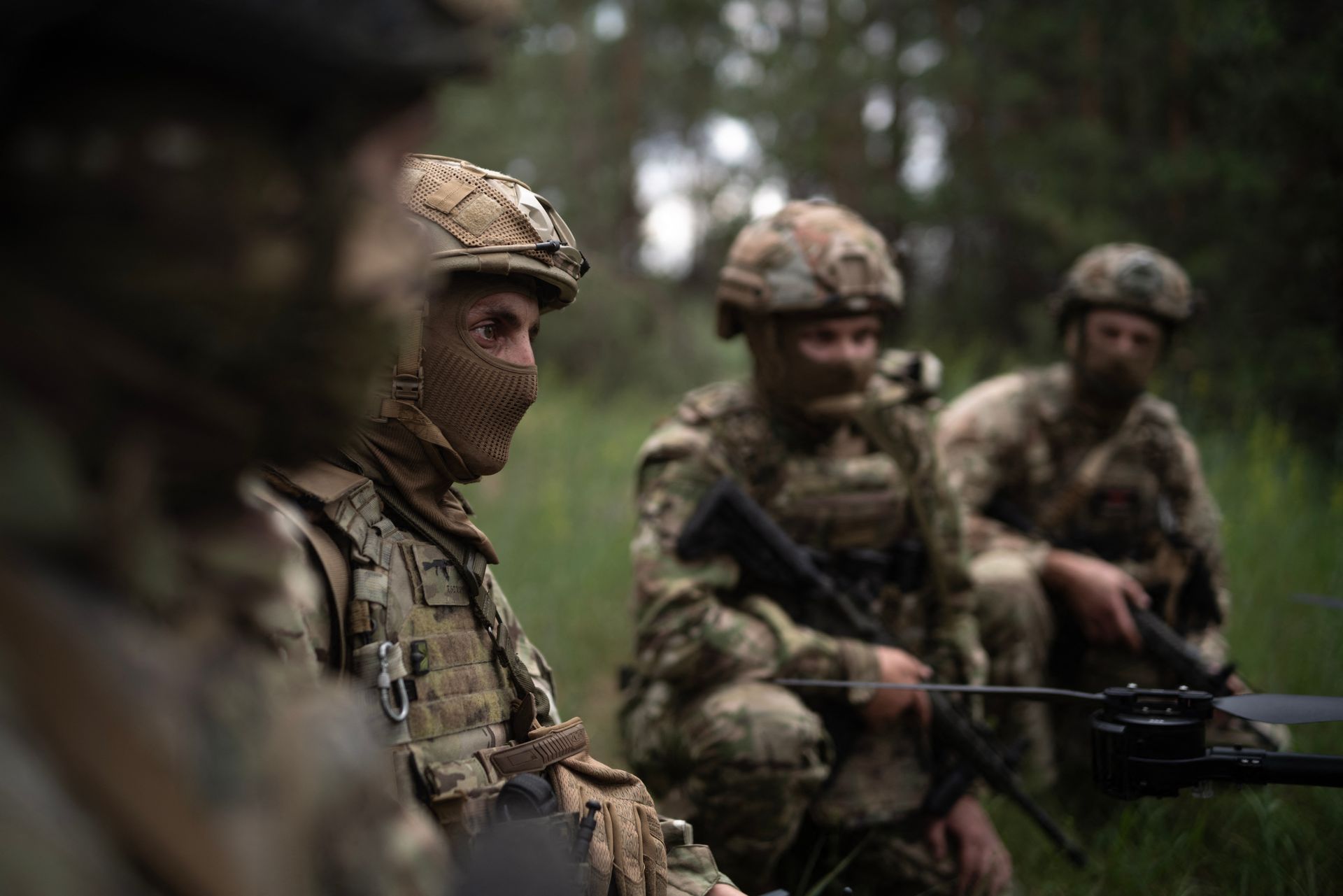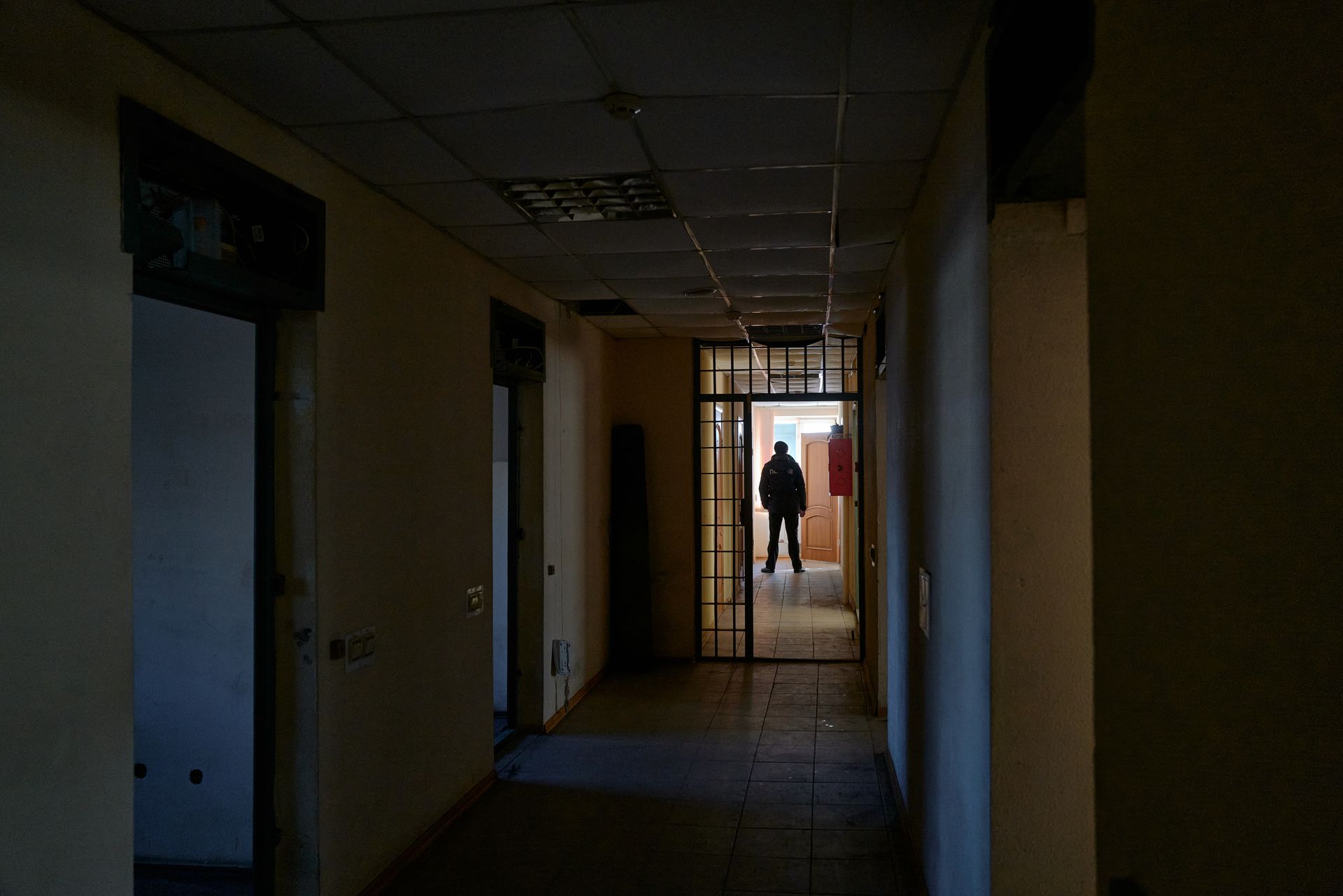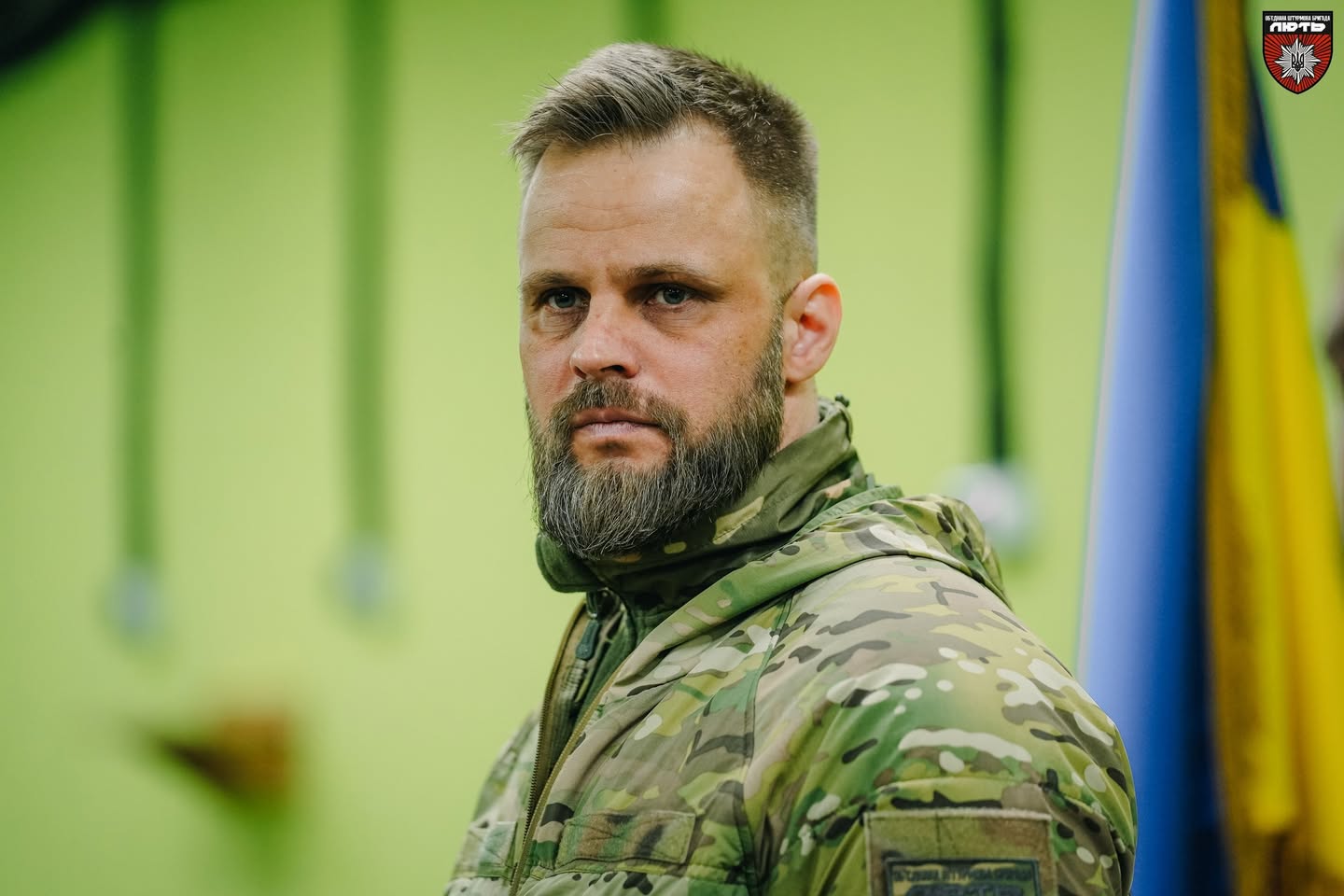Ukraine war latest: Ukraine, Russia hold third round of peace talks in Istanbul

Key developments on July 23:
- Ukraine, Russia hold third round of peace talks in Istanbul
- Ukrainian drones reportedly target key logistics hub in southwestern Russia
- Russia suffered 80,000 casualties during Kursk incursion, Ukraine's military chief says
- 'He sees Trump as emotional and susceptible to influence' — Putin not worried about 50-day ceasefire deadline, Guardian reports
- Belarus threatens to shift Zapad-2025 military drills closer to NATO border
Ukrainian and Russian delegations held a third round of peace talks in Istanbul on July 23, with the meeting lasting less than an hour.
During the talks, Ukraine proposed holding a summit between President Volodymyr Zelensky and Russian President Vladimir Putin before the end of August, according to National Security and Defense Council Secretary Rustem Umerov, who led the Ukrainian delegation.
"We are working on priority issues. Our priority is always people, ceasefire and meeting of leaders," Umerov said after the talks.
According to Umerov, Ukraine and Russia agreed to conduct a humanitarian exchange involving more than 1,200 people. Zelensky previously identified the return of abducted Ukrainian children and an immediate ceasefire as key priorities in the talks.
Vladimir Medinsky, Putin's aide and head of the Russian delegation, said Moscow proposed forming three working groups to meet online and address political, military, and humanitarian issues.
Commenting on a possible leaders' meeting, Medinsky said it was crucial to first determine the topics for discussion.
The Ukrainian delegation also included Presidential Office head Andriy Yermak, First Deputy Foreign Minister Sergiy Kyslytsya, and deputy military intelligence chief Vadym Skybytskyi.
Umerov's team met Turkish President Recep Tayyip Erdogan earlier in Ankara before heading to the talks in Istanbul.
The July 23 meeting followed earlier rounds of negotiations on May 16 and June 2, after more than three years without formal talks. Despite limited progress, both sides have managed to negotiate several prisoner exchanges since restarting discussions.
While Zelensky has expressed readiness for face-to-face talks, Putin has repeatedly declined to participate in person, sending lower-level officials instead.
The peace talks, characterized by great distance between the two sides' demands, have been given new energy after U.S. President Donald Trump's warning on July 14 that he would impose "severe" tariffs on Russia unless it agrees to end the war within 50 days.
Kremlin spokesperson Dmitry Peskov has reiterated that Moscow's war goals remain unchanged, reflecting Russia's reluctance to concede from its maximalist demands.
Ukraine has proposed a 30-day unconditional ceasefire in both rounds of talks — a position supported by the U.S. — but Russia has so far rejected the proposal.
On July 7, Kyslytsya told the Kyiv Independent that Russia's approach at the Istanbul meetings amounts to ultimatums rather than genuine negotiations.
Ukrainian drones reportedly target key logistics hub in southwestern Russia
Ukrainian drones reportedly struck the Russian city of Novocherkassk in Rostov Oblast on July 22, while a Ukrainian official said that a railway hub used by the Russian military was targeted.
The alleged attack comes amid Kyiv's ongoing long-range drone campaign, aimed at crippling Russia's ability to sustain its all-out war by targeting key industrial and military facilities in the rear.
Rostov Oblast Governor Yuri Slyusar confirmed Ukrainian drone attacks against Novocherkassk and other areas in the region. Drone wreckage started fires across the city, and three people were injured, one of them seriously, the governor claimed.
Drones may have targeted the local railway station and the Novocherkassk State District Power Plant, Russian Telegram channels Baza and Astra reported, citing local residents.
"In Novocherkassk in Rostov Oblast, the railway infrastructure used by the military-industrial complex and the Russian military came under attack," said Andrii Kovalenko, an official at Ukraine's National Security and Defense Council.
"This logistical hub connects strategic directions: Rostov-on-Don, Voronezh, Volgograd, and Kamensk-Shakhtinsky. It is through this hub that the transfer of equipment, ammunition, fuel resources, and personnel to the Ukrainian border is carried out."
According to the official, the city also houses the facilities of Russia's 1061st Material and Technical Support Center of the Southern Military District, which are responsible for arms and fuel supplies.
Novocherkassk, a southwestern Russian city of 160,000 residents, lies around 200 kilometers (120 miles) from the front line in Ukraine.
"Hubs like Novocherkassk are the arteries that feed the Russian war machine. Without them, supplies to the front stop," Kovalenko said.
Thirty-three Ukrainian fixed-wing drones were downed over Russia overnight, including 11 over Rostov Oblast, the Russian Defense Ministry claimed. Russian officials have not confirmed any damage to military or strategic facilities in Novocherkassk.
The Ukrainian military has not commented on the claims, which could not be independently verified.
Russia suffered 80,000 casualties during Kursk incursion, Ukraine's military chief says
Moscow suffered 80,000 soldiers killed and injured during Ukraine's cross-border incursion into Kursk Oblast, Commander-in-Chief Oleksandr Syrskyi said in an interview with the Washington Post published on July 23.
Syrskyi did not reveal Ukraine's casualties in Kursk Oblast but said Russia's losses were significantly greater. The claims could not be independently verified.
Ukraine launched the unprecedented offensive into the Russian border in August 2024, taking Russia by surprise and seizing 1,300 square kilometers (500 square miles) in the first few months.
The operation, masterminded by Syrskyi, was designed to divert Russian troops from the front in eastern Ukraine and to disrupt Russia's alleged plans to invade Sumy Oblast, a northeastern region bordering Kursk Oblast.
Boosted by around 12,000 North Korean troops, Russia launched a counter-offensive this spring, pushing Ukraine from the vast majority of the Russian territory and advancing into border areas of Sumy Oblast.
According to open-source monitoring group DeepState, Ukraine continues to hold a small strip of Russian territory on the border in Kursk Oblast, and Kyiv has repeatedly rejected Moscow's claims about the end of hostilities in the area.
While the Kursk operation received praise for its initial tactical success, experts remain divided regarding its strategic usefulness.
Critics say the incursion failed to halt Russian advances in Donetsk Oblast and argue the operation should have been ended sooner before it turned into a prolonged and costly battle.
Almost a year after the operation's start, Syrskyi and other Ukrainian leaders continue to cite heavy Russian losses as one of the incursion's chief achievements.
In April, shortly after Russia announced it had recaptured nearly all of its territory in Kursk Oblast, the Ukrainian military put Russian losses at 25,200 killed and 36,200 injured. North Korea is also believed to have suffered up to 6,000 casualties, half of its entire contingent in the region.
Elsewhere on the front, Moscow's forces continue to push forward with a fresh offensive launched in May. Russian troops are attempting to establish a beachhead in Sumy Oblast and, for the first time, penetrate Dnipropetrovsk Oblast in central-eastern Ukraine.
While Kyiv continues to resist Russian aggression, it also contends with Russia’s advantage in manpower and resources, as well as dynamic — and at times volatile — relations with its chief military backer, the U.S.
'He sees Trump as emotional and susceptible to influence' — Putin not worried about 50-day ceasefire deadline, Guardian reports
Russian President Vladimir Putin is not worried about U.S. President Trump or his 50-day deadline for Russia and Ukraine to reach a ceasefire, the Guardian reported on July 22, citing unnamed Kremlin officials.
"Moscow is disappointed and upset that it didn’t work out with Trump… But whatever expectations Putin might have had for a good relationship with Trump, it was always going to come second to his maximalist goals in Ukraine. For Putin, the invasion of Ukraine is existential," a former high-ranking Kremlin official said.
On July 14, Trump announced the White House will impose "severe tariffs" on Russia unless it agrees to a deal on ending the war in Ukraine within 50 days.
The U.S. leader also announced that Washington will supply Ukraine with new weapons, including Patriot air defense systems, amid intensified Russian missile and drone attacks.
"Putin didn’t go out of his way to humiliate Trump — but he certainly didn’t handle it wisely," the Kremlin official said.
Russia's bombardment of Ukrainian cities following talks between Trump and Putin was a "strategic mistake" that misread Trump, the official told the Guardian, noting that Putin is "obsessed" with not looking weak.
"A lot can happen in 50 days — and Putin knows that. He sees Trump as emotional and susceptible to influence... Moscow will keep making overtures toward Washington. They don’t see this rift as irreversible," a source within Russia’s foreign policy establishment said.
Meanwhile, Putin sees Trump's ultimatum as an opportunity to maximize his goals for Russia's war against Ukraine, those familiar with the Russian leader's thinking told the Guardian.
"In Moscow, there had been hope and anticipation of forging a strong relationship with Trump... But the baseline expectation in Russia has always been tougher U.S. sanctions and a steady flow of weapons to Ukraine," independent Russian political analyst Tatiana Stanovaya said.
Reuters on July 15 reported that Putin remains determined to continue Russia's war against Ukraine until the West agrees to peace on his terms.
Russia continues insisting on its terms, despite Trump's recent threats to impose 100% "secondary tariffs" on Moscow unless it agrees to a peace deal within 50 days.
Trump's 50-day ceasefire deadline was both welcomed and garnered criticism among Ukraine's allies, who believe the deadline is too long.
The EU welcomed Trump's renewed push to bring Russia to the negotiating table, EU Foreign Affairs Chief Kaja Kallas told the Telegraph in an article published July 14, adding that Washington's 50-day timeline is a "long time."
"On one hand, it is very positive that President Trump is taking on a strong stance on Russia... On the other hand, 50 days is a very long time if we see that they are killing innocent civilians," she said.
Belarus threatens to shift Zapad-2025 military drills closer to NATO border
Belarus signaled on July 23 that it could reverse its earlier decision to move the Zapad-2025 military drills inland, citing what it called escalating military activity by Poland and Lithuania near its borders.
Belarusian Deputy Defense Minister Pavel Muraveika said Minsk originally chose to move the joint Russian-Belarusian drills away from the western frontier to ease tensions, but that decision may now be reconsidered.
"Given the difficult military and political situation and the fact that Belarus is constantly accused of aggressive intentions, we have made a decision and moved the areas of the event away from the borders," Muraveika said. "But our Western colleagues began to speculate on this process."
The Zapad-2025 drills, expected to take place in mid-September, will involve around 13,000 troops and are among the largest joint exercises held by Russia and Belarus.
Kyiv and NATO officials have voiced concern over the drills, which are set to occur amid Russia's ongoing full-scale invasion of Ukraine.
Muraveika specifically cited recent NATO movements as justification for a possible venue revision.
"Poland has announced that it is ready to conduct divisional-scale exercises near our borders near Grodno, the Bialowieza Forest. Lithuania is transferring the Iron Wolf brigade to the Pabrade training ground," he said.
"Under these conditions, we reserve the right to make a decision and move our individual units during the exercises to work out episodes of an exclusively defensive nature."
In February, President Volodymyr Zelensky warned that Russia planned to deploy up to 150,000 troops, or 15 divisions, to Belarus in preparation for a potential military escalation.
While Minsk has not deployed its own troops in combat during Russia's war in Ukraine, it has provided critical support, including launching areas for Russian missile strikes and ground operations in the early phase of the invasion.
Note from the author:
Ukraine War Latest is put together by the Kyiv Independent news desk team, who keep you informed 24 hours a day, seven days a week. If you value our work and want to ensure we have the resources to continue, join the Kyiv Independent community.















